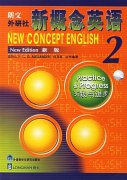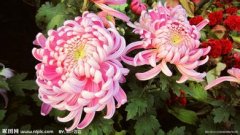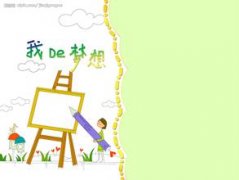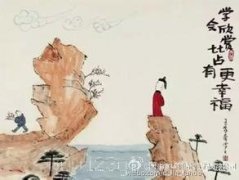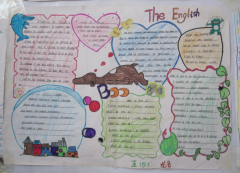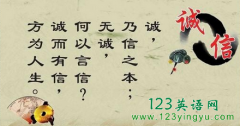初中英语语法大全:代词(5)
编辑:高中作文网
1)other可以作形容词用,后面可以跟单数或复数名词,意思是“其他的、别
的”。
Where are his other books?
I haven't any other books except this one.
2)other也可以用作代词,与冠词the连用构成“the other”,表示两个人或物中的“另一个”。常与one搭配构成“one ..., the other ...”句型。
He has two brothers. One is 10 years old , the other is 5 years old.
She held a ruler in one hand and an exercise-book in the other.
3)other作代词用时,可以有复数“others”,泛指“另外的人或物”。常与some搭配构成“some ...., others ...”句型。
Some went to the cinema, others went swimming.
This coat is too large. Show me some others, please.
4)“the others”表示特指某范围内的“其他的人或物”。
We got home by 4 o'clock, but the others didn't get back until 8 o'clock.
In our class only Tom is English, the others are Chinese.
5)another可以作形容词用,修饰后面的名词,意为“另一个”,还可以跟代词one.
You can see another ship in the sea, can't you?
Mary doesn't want to buy this skirt. Would you please show her another one?
6)another也可以作代词用,表示“另一个”。
I'm still hungry after I've had this cake. Please give me another.
必背!
惯用词组each other , one another, one after another(一个接一个)
the other day(前几天)
VI相互代词
表示相互关系的代词叫做相互代词。相互代词有each other 和one another两种形式。在当代英语中,each other和one another没有什么区别。相互代词可在句中作宾语,定语。作定语用时,相互代词用所有格形式。
We should learn from each other / one another. (作宾语)
We often borrow each other's / one another's books. (作定语)
VII常见不定代词的一般用法:
分类 都 都不 任何(一个) 每(一个) 另一个
涉及两者时 Both Neither Either Each The other
涉及三者及以上 All None Any Every Anther
1 all,both的用法
(1)all代表或修饰两个以上的人或物,或不可数的东西。在句中可作主语、表语、宾语、同位语和定语。
注意:
all,both的位置和频度副词一样放在be动词、情态动词及助动词之后,如有多个助动词,则放在第一个助动词之后。放在一般动词(实义动词)之前。
They all(both)went there.
他们(两个)全都去那里了。
(2)both是指两者都…;而all是指三个和三个以上的人或物都…。在句中可作主语、宾语、同位语和定语。注意它们的区别:
比较
They were all waiting outside the gate.
他们(三个以上)都在大门外等着。
They were both waiting outside the gate.
他们两个都在大门外等着。
2 each,every的用法
(1)从数量上看:each用来指两个或两个以上的人或物中的一个。every则指两个以上的人或物中的一个。
There are many trees on each side(不能用every side)of the street.
大街的两侧有许多大树。
On each(every)side of the square there were soldiers.
广场的四周都是士兵。
(2)从含义和语法功能上看:each是“单个”的意思,侧重于个体、个性,在句中可作主语、同位语、定语和宾语。
而every是“每一个”的意思,侧重全体、整体、共性。在句中只能作定语,也就是说它后面必须跟着名词。
必背!
含有every的词组
every week每周 ; every two weeks每两周
every other day(week,line)每隔一天(每隔一周,每隔一行)
every other ten days每隔十天
Every student is here.=All the students are here.
所有的学生们都出席了。(强调整体)
Each of the boys has a bike.
每个男孩子都有一辆自行车。
(each作主语,强调个体,每一个)。
each作同位语时在句子中位置及谓语动词的变化。
The students have two pens each.(作同位语)
每个学生有两支钢笔。
They each have two pens.(作同位语)
他们每人有两支钢笔。
Each of the students has two pens.(作主语)
每个学生有两支钢笔。
Each of them has two pens.(作主语)
他们每人有两支钢笔。
注意
every在句中只能作定语,而它的合成词只能作主语、宾语和表语,而不能作定语,也就是说every后面必须跟名词,而它的合成词后面绝不可能跟名词。
Every boy is here .=Everybody is here.每个人都在。
3 either,neither,both的用法
either:指两者中的任意一个。
neither:指两者中没有一个,全否定。
both:指两者都,肯定。
在句中可作主语、宾语和定语。
Neither of the films is good.
两部电影都不好。(没有一部是好的)
Either of the films is good.(作主语,谓语动词用单数)
两部电影中有一部不错。
注意:
标题上三词作定语时的比较,both后面的名词要用复数,谓语动词用复数。
either和neither后面的名词要用单数,谓语动词用单数。
4 many,much的用法
Many(of)the students have sports.(作主语)
许多学生参加体育锻炼。
He has not got much time to go over his lessons.(作定语)
他没有多少时间复习功课了。
We are many;you are few.(作表语)
我们是多数,你们是少数。
She has much(work)to do.(作宾语)
她有许多工作要去做。
VIII疑问代词
疑问代词有who,whom,whose,what和which等。疑问代词用于特殊疑
问句中,一般都放在句首,并在句子中作为某一句子成分。例如:
Who is going to come here tomorrow? (作主语)
IX关系代词
关系代词是一种引导从句并起连接主句和从句作用的代词。关系代词有 who, whose, whom, that, which. 它们在句中可用作主语,表语,宾语,定语. 在主句中,它们还代表着从句所修饰的那个名词或代词。例如:
I hate people who talk much but do little.
X it的用法小结
1指代上文提到的名词 There is a pen on the desk. It’s mine
2表示时间,天气,距离等 It’s raining so heavily.
3做句子的形式主语 It took the villagers ten years to build that road.

